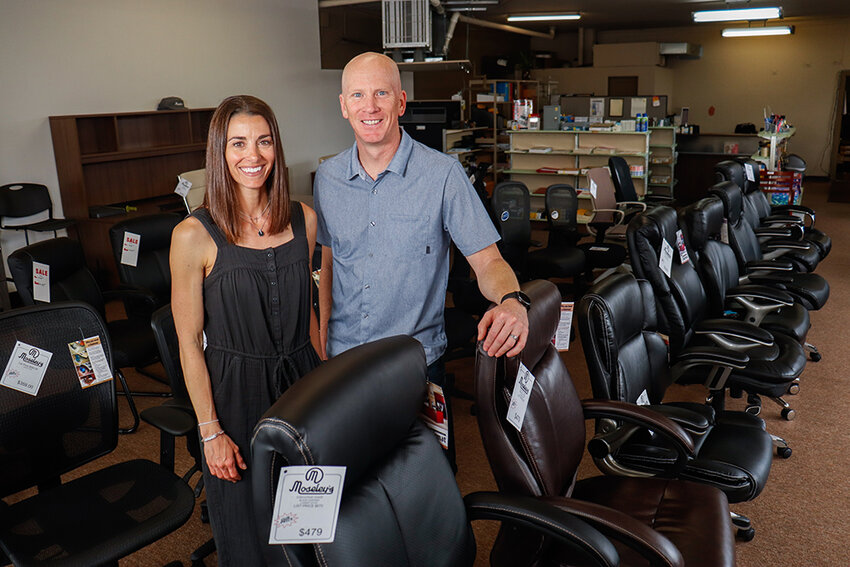YOUR BUSINESS AUTHORITY
Springfield, MO
YOUR BUSINESS AUTHORITY
Springfield, MO
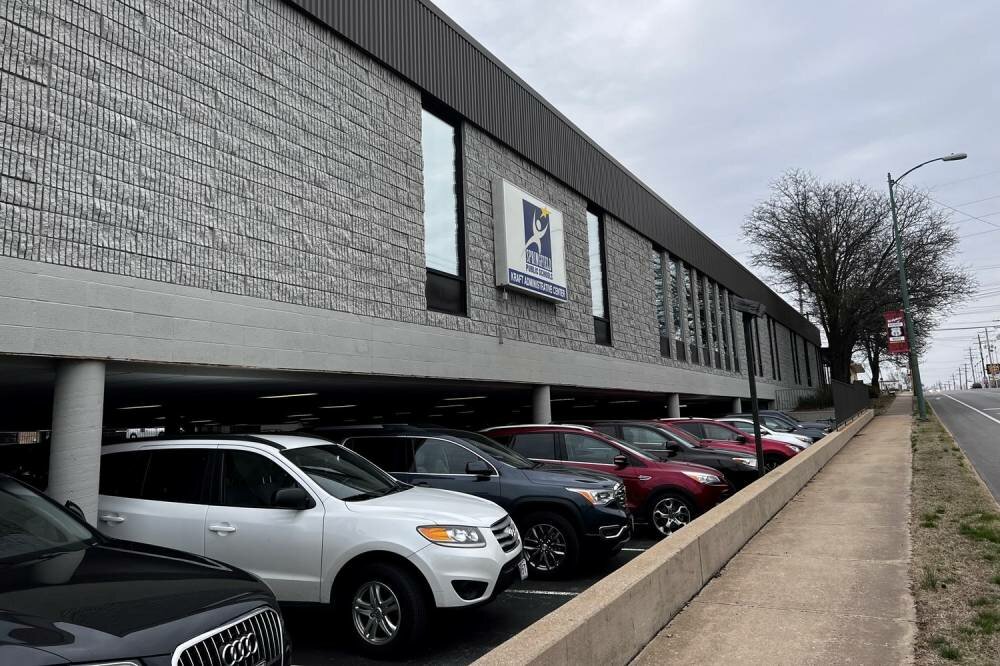

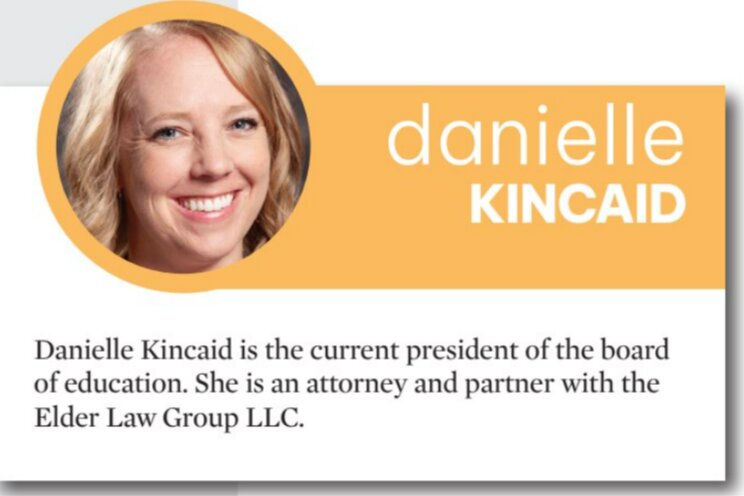
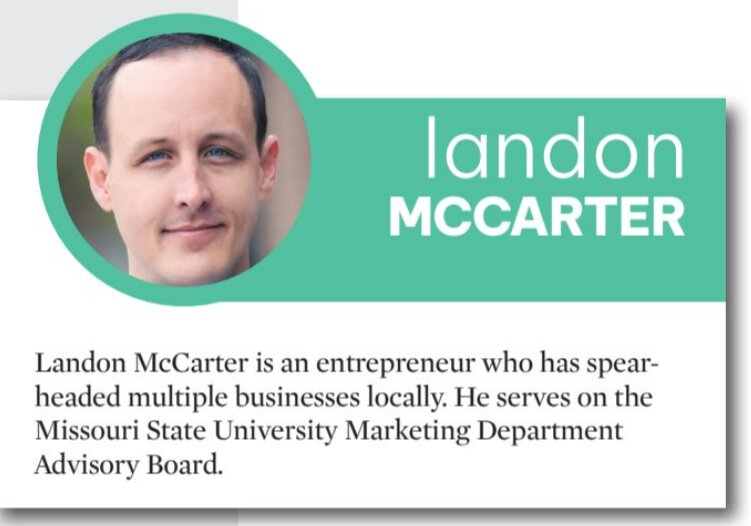
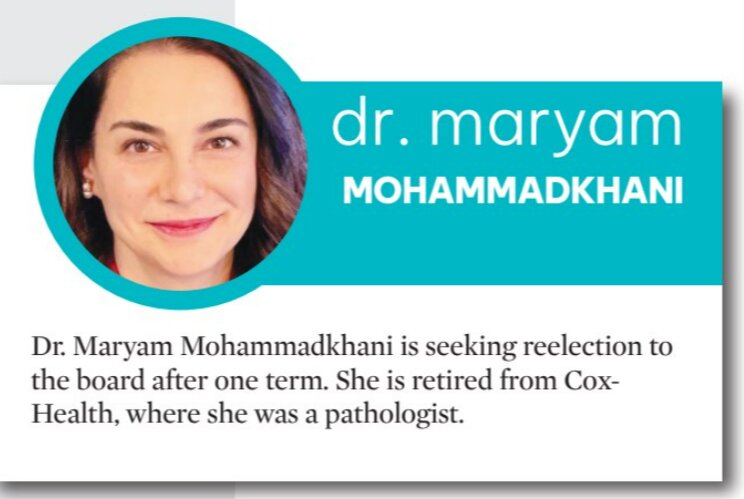
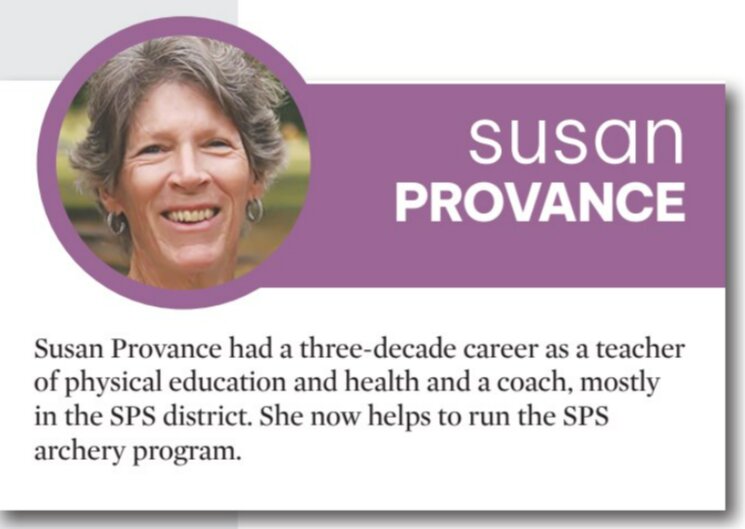
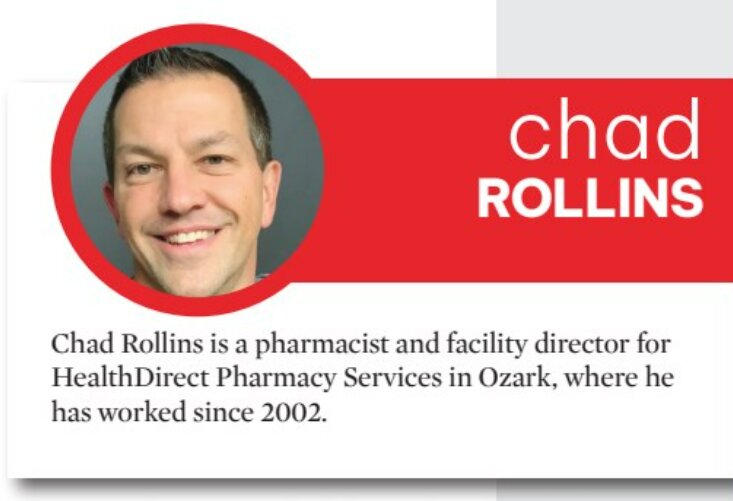
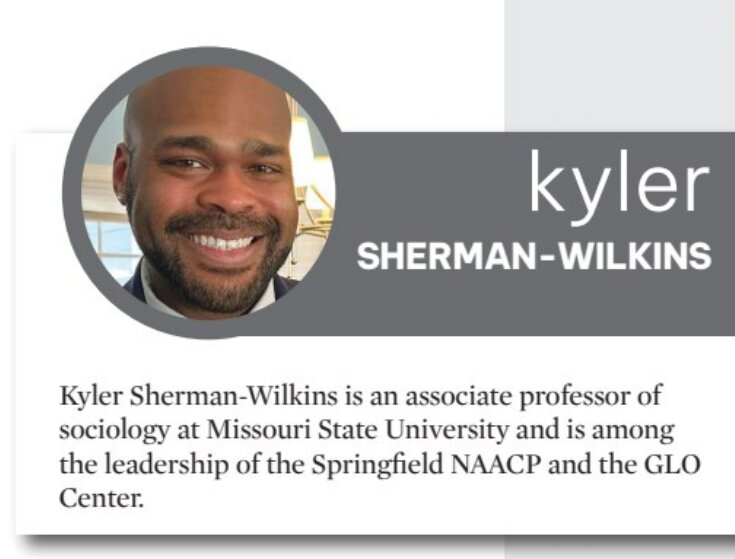








On April 2, voters will choose from among seven candidates to fill three open seats on the Springfield Public Schools Board of Education.
Three incumbents and four newcomers are on the ballot. Running for reelection are Scott Crise, Danielle Kincaid (current board president) and Maryam Mohammadkhani. Seeking first-time seats on the board are Landon McCarter, Susan Provance, Chad Rollins and Kyler Sherman-Wilkins.
In 2023, Springfield Business Journal joined the Informed Voters Coalition, a nonpartisan group with the goal of educating voters and engaging candidates with citizens. To introduce candidates to SBJ readers, we present the answers they provided to questions posed on behalf of the coalition. One question, along with candidates’ answers to it, is featured in this print edition of SBJ, and the others are available at SBJ.net/april24election along with two original questions of our own. All candidates were asked identical questions and were given the same time and space constraints for answering them.
Here, the candidates’ responses are presented in the order by which they turned in responses to SBJ’s queries.
In addition to SBJ, members of the Informed Voters Coalition are Be Civil Be Heard, Drury University’s L.E. Meador Center for Politics & Citizenship, Junior League of Springfield, KSMU Ozarks Public Radio, Leadership Springfield, League of Women Voters of Southwest Missouri, Missouri State University’s Office of Public Affairs, NAACP Springfield, Ozarks Technical Community College’s Social Sciences Department, Rosie, Show Me Christian County, Springfield Greene-County Library District and Springfield News-Leader.
Financial information
SBJ asked candidates to explain their ties to the business community along with details on who is funding their campaign. This information is available online.
The Missouri Ethics Commission publishes campaign finance reports online. The most recent deadline was required to be filed 40 days before the April 2 election, with additional updates filed within 48 hours for donations of more than $5,000. Donors or political action committees who gave the candidates more than $1,000 are listed here.
Scott Crise, Scott Crise for Springfield Public Schools Board of Education; Robert A. Hammerschmidt, treasurer: United Springfield, $20,000; Jeff Hutchens, $5,000; Mike White, $5,000; Nancy White, $5,000; John Stack, $1,500.
Danielle Kincaid, Committee to Elect Danielle Kincaid; Carol Taylor, treasurer: United Springfield, $20,000; Abram McGull, $1,041.44; Cameron Rose, $1,041.44.
Landon McCarter, Landon McCarter for SPS School Board; Nancy-Ellen Smithson, treasurer: Curtis Jared, $7,500 (in-kind); Loren Cook, $5,000; Tom Fowler, $3,000; Daniel Scott, $1,500; Robert Wilson, $1,250; Todd Wilson, $1,250; Robert Byrne, $1,000; Grant Rahmeyer, $1,000; Joseph Rhodes, $1,000; Greg Stancer, $1,000; James Whitley, $1,000.
Maryam Mohammadkhani, Parents for Mohammadkhani; William W. Miller, treasurer: Jeffrey Bauer, $10,000; Curtis Jared, $7,500 (in-kind); Loren Cook, $5,000; David Smid, $5,000; Travis Comfort, $2,500; William Scharf, $2,500; Robert Wilson, $2,500; Todd Wilson, $2,500; Linda Fowler, $1,500; Amy Hiles, $1,500; Raffaele Pennella, $1,031.63 (in-kind); Will Cox, $1,000; Teresa Davis, $1,000; William Duncan, $1,000; Norman Ely, $1,000; Matthew Kienstra, $1,000; Ryan McDonald, $1,000; Sedighe Mokarram, $1,000; Ed O’Toole, $1,000; Robert Shaw, $1,000.
Susan Provance, Susan Provance for School Board; Mark E. Stratton, treasurer: United Springfield, $20,000; Mark Stratton, $1,687.20 (in-kind).
Chad Rollins, Chad Rollins for Springfield Public School Board; Michelle Herring, treasurer: Curtis Jared, $20,000 (monetary) and $2,500 (in-kind); Loren Cook II, $5,000; Andrew Jared, $2,500 (in-kind).
Kyler Sherman-Wilkins, Springfield for Sherman-Wilkins; Robert Stephens, treasurer: Joycelyn Millana, $4,536 (in-kind); Emily Hahn, $1,000.
Candidate Q&A
The following is an excerpt from an interview by the Informed Voters Coalition. It includes a single question with the unedited response. The other questions and responses – addressing student discipline, teacher benefits and support, and the role of public schools – along with responses to two questions posed by SBJ, are available online at SBJ.net/april24election.
What do you view as the greatest challenges facing the Springfield school district? Which of these would be your priority objective, and how would you meet that challenge?
Chad Rollins: Some of the biggest challenges right now – we just talked about one of them, which is discipline, and I would say that’s probably pretty high up there, so I won’t cover that again, but that’s one that we need to focus on within the strategic plan. I’ve talked about the quality learning environments, and we really need to make the environment in the classroom one free of distractions – a place where kids can learn and teachers can teach. So that’s the No. 1 thing that I think we need to be looking at. I think we really need to support these teachers. We are going to be facing a lot of support staff, you know, a decreased amount, and that’s something we need to focus on and turn that back around, in my opinion. These teachers are asking for that. They’re asking for different things that can help them teach. I think we need to look at different ways to increase contract hours for the teachers, maybe with more late start, early release, to give them some more hours or creative ways to make it to where they can prepare their lessons and get ready to be prepared to teach in the classroom, because I think we can all see that we’ve had a decline in our test scores, and you know when we’re not proficient in math, science and different things like that, then we’re not doing our job. So, we need to get that turned around, and that’s a big topic this year.
Scott Crise: There’s many challenges facing Springfield Public Schools, but one of them is retaining high-quality teachers. There are many factors that contribute to attracting and maintaining quality teachers, the teaching staff at SPS. First, the district needs to continue to increase benefits and salaries. SPS’s incentive for early notification of resignation and retirement is so beneficial because it allows SPS to get to the market earlier than other districts to recruit the best talent in the area. New teachers must have great support throughout the district, including comprehensive ongoing training as well as mentors to support and nurture them. Also, the district must provide a robust assortment of leadership or professional development opportunities. In the short term, though, SPS must also improve addressing student discipline issues, which we just talked about, in a consistent manner, so teachers feel they will be working in a safe environment when they are hired.
Danielle Kincaid: We have a lot of challenges, and we have a lot of successes. With 24,500 students, we’ve got, again, challenges and successes. The idea of student behavior being a challenge is one that we are constantly hearing at the board table and in our community. But as I stated with the last question, it’s going to take time to move that needle. I think that we are moving in the right direction, although it will take some time. Another challenge that we have is looking at increased academic achievement. Ultimately, the reason the school is here is for academic achievement, and we have instituted a new testing system this year so that we can track students individually and see where did you come in when you started the school year? Where are you at in the middle of the school year? And where are you at the end of the school year? And if a student comes in at advanced and remains at advanced, that’s fantastic, but another success story would be a student coming in under grade level, moving into proficient and then moving into advanced, and we need to dig in and see what services and what education tools are we providing to those teachers and those students who we see making those big gains throughout the school year? When you set students up for success and you move that needle throughout the grade – let’s say second grade – now they’ve moved up into advanced or proficient for third grade, and they can continue that academic achievement. Our testing system now allows us to dig in and look at that actual student and how they’re making progress throughout the school year. So, certainly academic achievement and student discipline, and then also supporting our teachers, and I think that that comes from the community as a whole in addition to within the district, making sure that they have the tools and resources they need.
Susan Provance: I think the greatest challenge that the Springfield school district faces today is getting quality teachers and maintaining quality teachers, and I know that it involves salary. But I think the other thing that it involves is the work environment. I don’t know how to change – it seems like sometime after COVID when they said this is a critical job, this is an essential job, and then now we don’t think it’s essential. We have lost a lot of respect. There are jobs that they don’t have the respect that they used to. I mean, I’m old enough to realize that back in the old days you used to go to the grocery store and the kids would go, “Oh, my gosh, Mom, that’s Coach Provance.” And I think that we can do a lot to improve the work environment because we need to maintain teachers; we need to make sure that the benefit package enables us to hire those great teachers. I would like to see the teachers not have their teaching time bureaucratically tied up. You know, part of respect is trust. When the curriculum coordinator says you’re teaching a first-aid unit, you’re teaching a cancer unit, you’re teaching a drug and alcohol unit, and then they trust you to use the things in the classroom that you can use, but they trust you to use it in the best way possible, so I hope that that will significantly help.
Maryam Mohammadkhani: I will give you three challenges, and they are all my priorities. The first challenge that I don’t think we can get away from, so we have to address it, is that there has been a shift from a cultural and socioeconomic standpoint, so today’s classrooms and today’s environment is very different, and that is something that is challenging us, and it is unlikely to abate. The second challenge is a competition for enrollment, and it affects the culture in our schools. There was a time when there were a couple options, and homeschooling was for a minority of students, and now it’s becoming more and more mainstream. And this does affect us, not just from a funding perspective, but from the diverse mixture of students we have in our classrooms, and that allows us to thrive, and that is of concern for me. And I think to effectively be able to counter that is to look at those reasons, those measurable reasons, which are academic achievement and discipline, and I’m glad that you asked me about discipline. So, these are priorities for me. Of course, academic achievement is always a priority. It’s my guiding light. Does the mission, the vision, we are all on top of that, and we’ve been very purposeful with respect to that. But third, and these are all intertwined as I speak about them, is the ability to attract and retain the best, most qualified, most dedicated, most energized, happiest staff, and especially teachers. And we do that – my plan to do that is to develop staff, to support staff and to empower staff. And that is all of these intertwined, and they must be done at the same time.
Kyler Sherman-Wilkins: I think there are four particular issues. One that I think is, to answer your question, what I would prioritize first and foremost: We need to uplift and support our teachers. We need to address the student discipline issue. We need to ensure that all of our classrooms are safe and inclusive. And we also need to make sure that we strengthen and not weaken collaborations between the district and the broader Springfield community, and that includes businesses, nonprofits, our parents, etc. I think first what I would like to focus on in terms of biggest issue for me as an educator is how do we recruit and retain qualified teachers? Teacher burnout is real. There are a lot of concerns about having to do more with less; there are a lot of concerns about whether they’re being listened and heard by the SPS administration. I was really proud to receive the endorsement not only of the (Springfield National Education Association) but also the Missouri State Teachers Association, and I got those endorsements because I can empathize with educators, and I have a record of being a staunch advocate for teachers’ rights and labor rights more broadly. I think recruiting and retaining teachers includes increasing pay and advocating for ways in which we can increase their pay. It means increasing professional development opportunities. It means increasing the number of affiliated staff – our educators broadly defined: our nurses, our paraprofessionals, our secretaries – because I think the teachers oftentimes are asked to be the teacher, the police officer, the nurse, the counselor in the classroom. If we provide them with those supports that allow them to focus on their job, which is to teach, and provide supports, they can more effectively do what their primary job is. I do think it’s really important that when we think about budget priorities that we look at and counter administrative bloat – it happens all the time at big organizations – and concentrate that money instead on how do we support the people on the front line, that being our teachers and educators, broadly defined.
Landon McCarter: I believe that the largest challenge that the district has is the behavior and, we’ll say, lack of consequences for that behavior. Public schools, and also I’ll extend that out to our public bus system as well, because that’s basically a microcosm of Springfield, right? So, the problems that we have at large in our city are going to meet in the classroom and on the buses. And so that is the biggest challenge that we have, because it’s not like we can just snap our fingers and all of a sudden all the kids decide to act accordingly. We also can’t act like private schools where we can just kick kids out of the school if they’re not giving us the behavior that we need to do, because these kids are owed an education. This is the public school, right? So, they deserve an education, and we care about them deeply, and they’re not getting what they need at home, so therefore they’re acting out. In terms of how to address the solution, I have a couple ideas. The first is kind of tactical. Right now, the progressive discipline matrix is what it’s kind of called, so infraction one has a certain consequence and leads up to the next several infractions. Right now, those sort of progressive consequences reset every school year, so I believe that we should have those consequences carry on with the student throughout their actual tenure of an actual building to allow a teacher for that kid not to just sort of walk the line as careful as they can and then next year just resets. I also believe in alternative educational sites. Right now, we have Study High School. I do believe we should expand alternative learning into middle school and elementary as much as possible. This is not to say that this is like the little SPS’s version of juvie; I’m saying that this is a smaller classroom with probably more-compensated teachers to give these kids the attention that they need, but we’ve got to make sure that they’re separated, if they’re going to continue to act out, from the other students to keep from their education.
Other stories that may interest you
Moseley’s Discount Office Products was purchased; Side Chick opened in Branson; and the Springfield franchise store of NoBaked Cookie Dough changed ownership.

